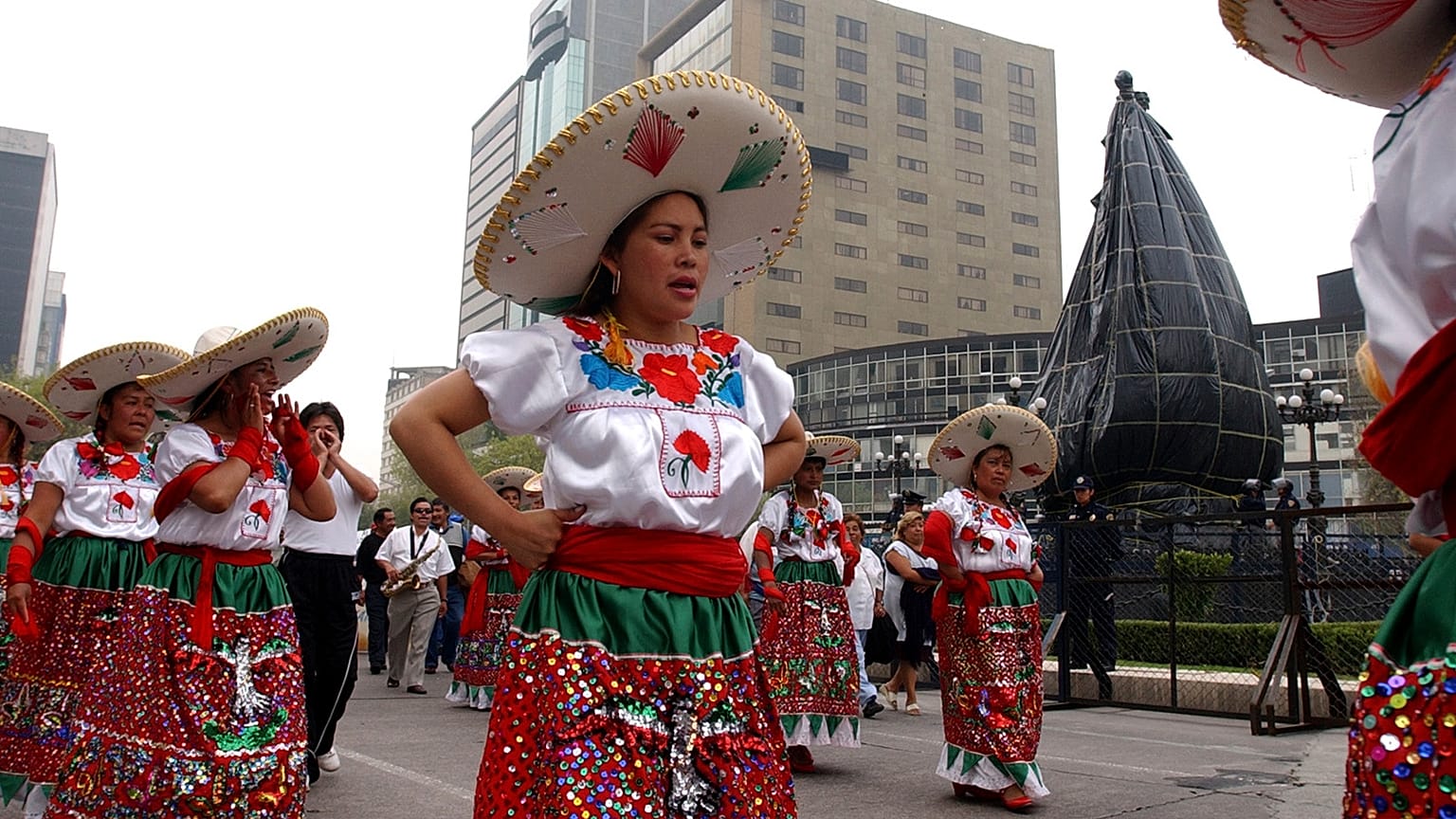While Spain, Italy and the United States celebrate the day Christopher Columbus landed on the American continent in 1492, some Latin American countries have opted to venerate their indigenous cultures instead of their colonisers.
The day on which Christopher Columbus first arrived in America in 1492 is observed as a holiday in several European and North American countries -- Spain, Italy, and the United States.
 ADVERTISEMENT
ADVERTISEMENT
 ADVERTISEMENT
ADVERTISEMENT
In other parts of the world, however, it is not his arrival on 12 October that is celebrated, but rather the indigenous peoples who inhabited the continent before Columbus could even point to it on the map.
Also known as Día de la Hispanidad in Spain and Día de la Raza in many Latin American countries, some places have changed the name of the holiday in recent years to highlight domestic diversity as opposed to the culture imposed by the Spanish colonisers.
What is celebrated on 12 October in Latin America?
Argentina
Commissioned by the Argentinian government, the Institute against Discrimination, Xenophobia and Racism (INADI) renamed 12 October as "American Cultural Diversity Day" in 2010 to promote historical reflection and intercultural dialogue about the rights of native peoples.
Bolivia
Evo Morales, Bolivia's first indigenous president, decided to change the name of the holiday in 2011 to "Day of Decolonisation in the Multinational State of Bolivia".
While he was in office, Morales made a point to observe this date in the Andean country.
Costa Rica
In 1994, this date was officially renamed "Day of Cultures".
"It is based on tolerance, recognises the ethnic diversity prevalent in the Americas and does not deny the heritage of Spain, the legacy of the indigenous people and the African contribution, among others," the Ministry of Education explains on its website.
"When the Day of Cultures was approved, it was definitely made clear that Costa Rica's roots, like those of the rest of the Latin American countries, come from three intermingling parts since 1492: the Spanish, the indigenous and the African-Caribbean, which made us -- although some ignored it -- a multicultural and multiethnic nation."
Ecuador
Every 12 October, Ecuador celebrates the "Day of Interculturality and Multinationality with Inclusion and Justice".
In a decree issued by former President Rafael Correa, the name change was said to have been made with the aim of "recognising and rectifying the true meaning of the 12 October events, promoting dialogue between different cultures and knowledge".
Guatemala
In Guatemala, Columbus Day is known as the "Day of Indigenous Resistance".
Venezuela
Hugo Chavez decided in 2002 by decree that this date would also be called "Indigenous Resistance Day" to end what he considered to be a "discriminatory, racist and pejorative" label to the holiday.
This day is "destined to recognise our Americanist self-affirmation for unity and cultural and human diversity, vindicating both the indigenous peoples of America and the contributions of African, Asian and European peoples and cultures in the shaping of our nationality, in the spirit of the dialogue of civilizations, peace and justice", according to the decree.
Peru
The Congress of the Republic of Peru commemorates the ''Day of the Indigenous Peoples and Intercultural Dialogue'' on this date since 2009.
Chile
The ''Day of the Discovery of Two Worlds'' was the new name given to the holiday by Chileans.
Nicaragua
For Nicaraguans, the holiday was renamed in 2007 as ''Day of Indigenous, Black and Popular Resistance'', following in the wake of Guatemala or Venezuela.
Dominican Republic
in the Caribbean island, 12 October is celebrated as "Identity and Cultural Diversity Day," although the old Día de la Raza is still used.
Uruguay
The equivalent of Día de la Raza is celebrated on 14 April 14, or the Day of the Americas. However, on 12 October, "Cultural Diversity Day" has been celebrated since 2014.
"The current label of October 12 as 'Día de la Raza' (Day of the Race) arises from a European vision of history in attention to the colonising Spanish contingent. Clearly, such name does not agree with the predominant feeling of the majority of Latin American peoples", says the text of the law that changed the name of the holiday.














